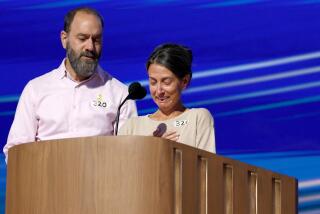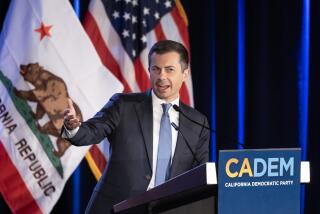Conventions
- Share via
The political conventions have once again invaded the prime-time slots, offering us the chance to see the politicians for what they really are: showmen. True, the national conventions give us an opportunity to observe one of the processes of representative government, but these modern-day conventions do not offer true substance in terms of political and civil relevance. Instead, they are replete with hoopla, rhetoric, staged demonstrations and idealistically contrived solutions to real-world problems.
What is or was the real purpose of the conventions, anyway? The political convention is (supposed to be) the means by which political parties in the United States select their nominees for President and vice president. The first nominating convention really national in scope was held by the Anti-Masonic Party in Baltimore in 1831. The Democrats date as their first national convention the parley in Baltimore in 1832 that nominated Andrew Jackson for his second term.
When TV coverage of the conventions began in 1948, the atmosphere and intent of the conventions decisively changed. Show business has replaced serious business. Hollywood producers and designers are now hired to set the stage, coordinate the color, arrange the theatrical lighting and bring on the song and dance. The conventions don’t choose candidates anymore. It’s an event whose outcome is already known. The networks have provided extensive coverage since 1952 and as of late have cut back on coverage, but not nearly enough.
In order to return legitimacy and worth to the conventions, I recommend to the organizers of these events that the deliberative and adversative elements be restored. These are the elements that give then conventions true civic value. Perhaps then, when they are more worthwhile to watch, more Americans will tune in. And who knows, voter registration might just increase along with the television ratings.
PAUL HIPPAKA
La Mesa
More to Read
The biggest entertainment stories
Get our big stories about Hollywood, film, television, music, arts, culture and more right in your inbox as soon as they publish.
You may occasionally receive promotional content from the Los Angeles Times.










